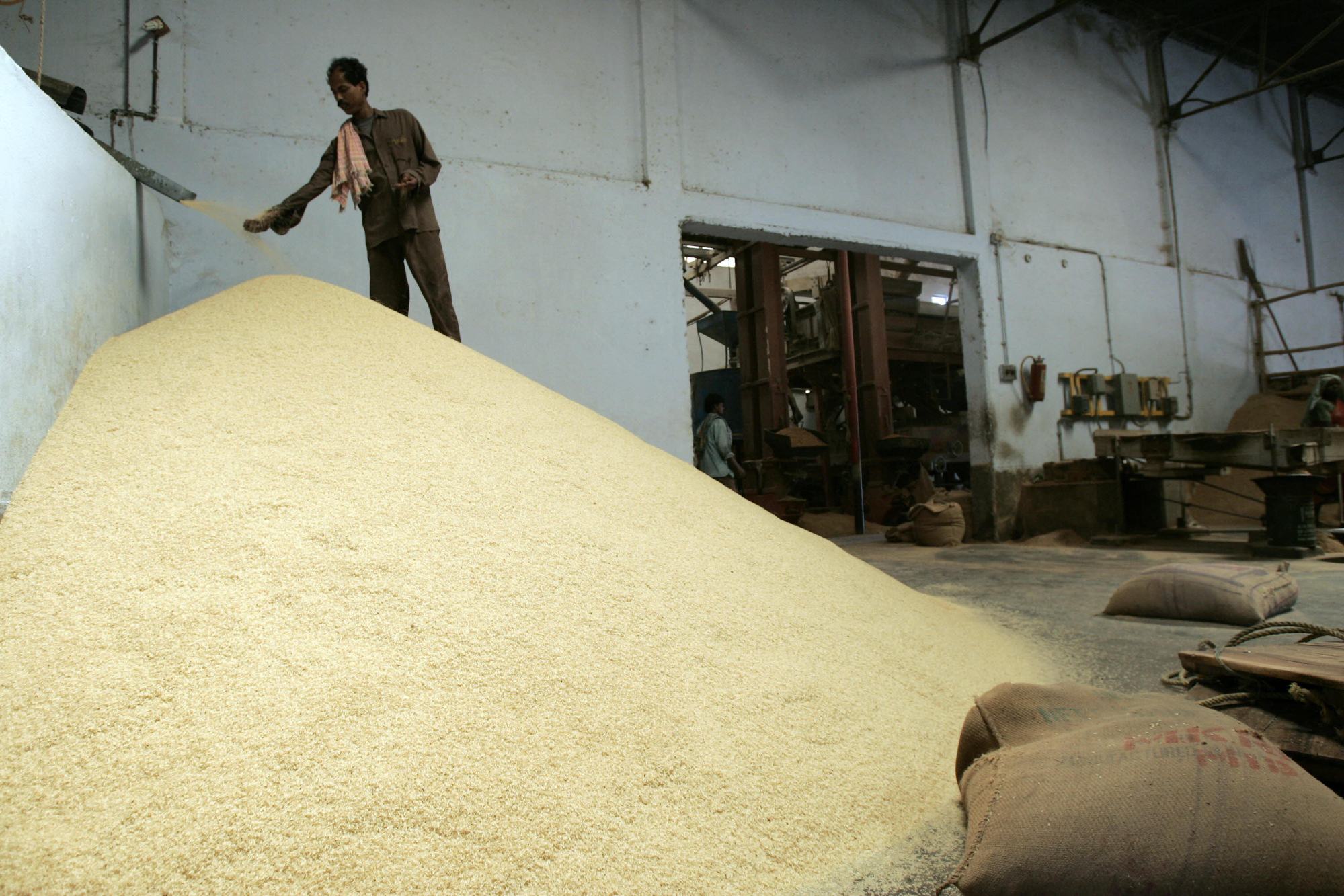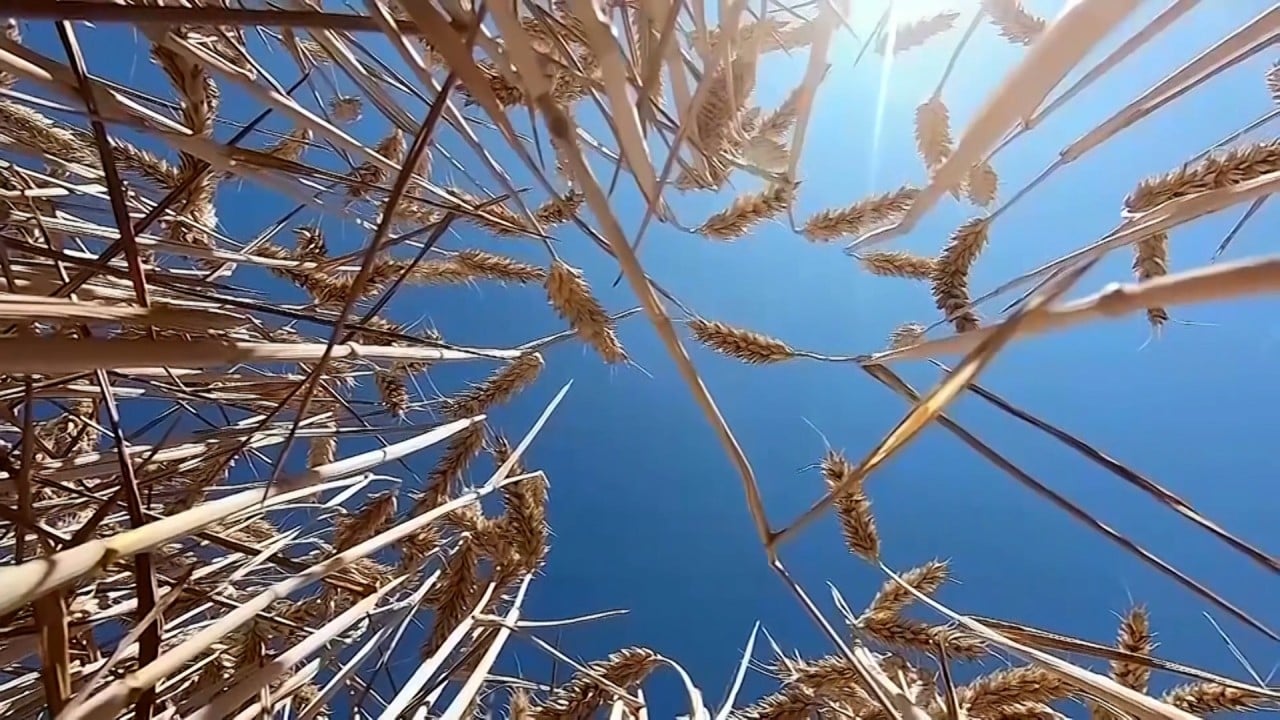[ad_1]
“If access on milled rice is conceded, the basis of operations will be undermined, the incentive for future investment in the UK will be lost and ultimately jobs will go.”
A spokesperson for the UK Department for Business and Trade stated officers have been working in the direction of an “ambitious trade deal.”
“We have always been clear we will only sign a deal that is fair, balanced and ultimately in the best interests of the British people and the economy,” the spokesperson stated.
A UK-India commerce settlement was meant to be a key prize of Brexit. Freed from the constraints of the European Union, the argument went, Britain might use a shared historical past and language to forge a landmark take care of essentially the most populous nation on the planet and fastest-growing main financial system.
In observe, negotiations launched beneath Boris Johnson in January final 12 months have been tormented by ambiguity and wrangling over every thing from visas for Indian employees and college students to market entry for UK makers of whisky and premium vehicles.
Hopes that his successor Rishi Sunak – a practising Hindu, the son of Indian immigrants and the son-in-law of Infosys co-founder Narayana Murthy – may make the distinction have proved huge of the mark.
With the UK and India locked of their thirteenth spherical of commerce negotiations, there are hopes on either side that settlement may be clinched this 12 months. However, the destiny of British rice millers stays unclear, with corporations complaining of a lack of knowledge from British officers.
One individual with information of the UK dialogue stated the query of tariffs on rice was but to be absolutely addressed, including that it was a contentious problem and that the 2 sides have been nonetheless a way off ironing out the extra “difficult” particulars of a commerce deal.
A separate supply with information of the Indian negotiating staff confirmed that the topic of tariffs on rice was very delicate, and that an settlement had not but been reached.
The battle to hash out an settlement underscores the difficulties the UK may need when attempting to formulate post-Brexit commerce offers with varied international locations around the globe.
Already its association with Australia has angered British farmers. Minette Batters, president of the National Farmers Union, stated she was “increasingly concerned about the cumulative impact of the government’s FTA programme” on UK industries.
Currently, the UK imports huge portions of brown rice from India – round 150,000 metric tons, or 1 / 4 of its whole rice imports, originate within the nation. Import tariffs make this cost-effective. The levy on brown basmati is £25 a ton, or zero if it’s included in an inventory of particular varieties. That’s a lot decrease the levy on white basmati, at round £121 a ton.

Slashing the tariff on white rice would depart UK mills redundant, business leaders declare, whereas bringing negligible value advantages for customers, threatening safety of provide and doubtlessly risking a drop in high quality.
Waugh contends there could be little acquire for India from decrease UK tariffs. Farmers within the nation already are likely to get a greater value from UK mills than from home gamers for his or her brown rice, he stated, since these patrons have to safe pesticide compliance and are more and more eager to supply rice with improved sustainability credentials.
For Indian millers, in the meantime, the portions of their milled rice which might be exported to the UK are more likely to be too small to actually transfer the dial on their income.
The downsides for the UK prolong past misplaced jobs and manufacturing, Waugh added. India is understood for limiting exports of rice when its home provides are scarce, with white rice usually first on the checklist to be restricted. At the second, the South Asian nation has carried out restrictions on each selection that’s shipped abroad. UK millers maintain vital inventory to clean that volatility, a provide that’s now doubtlessly threatened.
British companies are additionally well-practised in complying with meals security rules – an necessary consideration when few checks on imported merchandise are carried out on the border. The Rice Association lately sampled 60 various kinds of basmati rice. It discovered that fifty per cent of the samples milled and packed in India or Pakistan complied with UK rules. By distinction, only one pattern milled and packed within the UK was discovered to be marginally non-compliant.
As commerce negotiations have heated up, executives inside the UK rice business have been left bemused by their encounters with Indian officers.
Jon Calland, chairman of the Rice Association, was invited together with a car-parts producer to the High Commission of India in London earlier this 12 months. “I’ve never had a meeting like that before,” he stated. “It was as though they were trying to trade us off against each other.”
Asia braces for more rice-price shocks as India’s export ban unnerves markets
Asia braces for more rice-price shocks as India’s export ban unnerves markets
Over cups of tea, Calland defined to officers from India’s Ministry of Commerce and Industry that the present system of tariffs labored properly for each international locations. If there have been any concessions to be made, Calland stated, India ought to push for extra kinds of brown basmati rice to be added to the restricted tariff-free checklist. That place is roundly supported by UK millers, would assist Indian farmers, and is known to be accepted by the British authorities.
Moni Varma, who based Veetee Rice in 1987, believes the UK may very well be on monitor to get its method – a lot to the reduction of its rice millers. On a latest name with Indian negotiators, Varma stated he obtained the impression that “they understand that they’re not going to get what they want on rice.”
“The UK is not that great a rice market that it’s going to make a dent in India’s budget,” he stated. “But you never know until it’s done.”
[adinserter block=”4″]
[ad_2]
Source link
